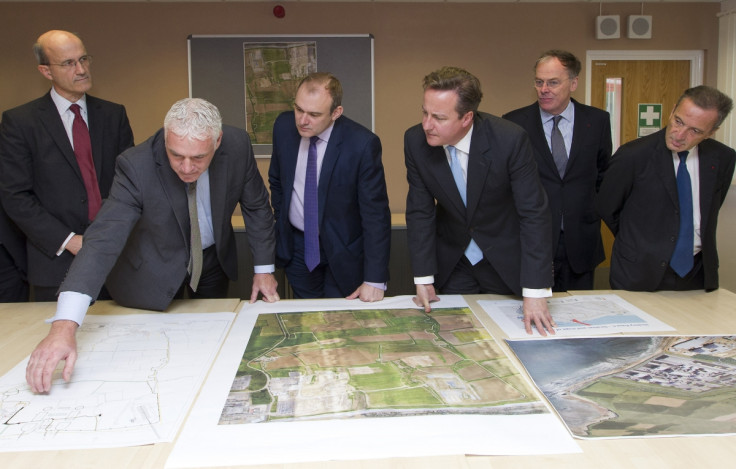Hinkley Point EDF finance chief row: Five questions about the Somerset nuclear plant

The financial chief of French utility company Electricite de France (EDF) quit on Sunday (6 March). CFO Thomas Piquemal's resignation raised questions about the future of the UK Hinkley Point C power plant.
But why did the finance boss resign and why is the Hinkley plant so significant? IBTimes UK answers the five most important questions surrounding the EDF row.
What is Hinkley Point C?
Hinkley Point is a nuclear power plant developed by EDF. The £18bn project, developed in Somerset, would be the first nuclear power plant in almost 20 years in the UK. It is expected the plant will provide 7% of the country's electricity once completed.
Initially, the project was set to be finalised in 2017 but the new crisis at EDF has added to rumours that Hinkley Point C will not become active until 2025. On completion, the plant is set to provide low-carbon energy to around six million families for the next six decades. Hinkley Point C will create 25,000 jobs in total.
EDF, which is 85% owned by the French government, is to finance two-thirds of the construction of the 1,600-megawatt Areva-designed European Pressurised Reactors alongside two existing plants in south west England, with China General Nuclear Power Corporation (CGN) contributing the rest.
Who is Thomas Piquemal?
Piquemal's resignation was first reported by Bloomberg on Sunday (6 March), and confirmed by EDF on Monday. The 46-year-old businessman was appointed as chief financial officer to EDF in February 2010, succeeding Daniel Camus.
Why did the finance chief resign?
The ESSEC Business School graduate stepped up after meeting with EDF chief executive Jean-Bernard Lévy several times to discuss the timing of the final investment decisions for the plant. Piquemal argued that the company would have a much better oversight of its finances in three years. Levy, on the other hand, wanted to make the decision by April.
EDF declined to comment on the reason behind Piquemal's departure, but several sources have told Bloomberg it was his conviction that the investment decisions should be put off that caused him to leave.
Why is the move so significant?
First, it is important to point out that the future of the Hinkley Point C power plant became even more uncertain when Piquemal stepped up. EDF's share price fell more than 7.5% on Monday.
It also shortly follows the announcement that of EDF's Chris Bakken, the director of the Hinkley project, is to leave the company. Bakken is leaving the French utility firm in April to join US power company Entergy.
Bakken's departure increased uncertainty surrounding the nuclear project in the UK. EDF stumbled upon problems at a Normandy-based plant, similar to Hinkley Point C.
In addition, the company has a £28bn net debt and still needs to find more than £40bn to continue 58 French nuclear plants. As EDF is already in a compromised position, the departure of a high profile executive will likely delay the Hinkley project and hurt its finances.
What's next for EDF?
The future of EDF in relation to the Hinkley Powerplant, largely depends on the French government. The energy company is 85% state-backed and it has already asked the government to take over part of its Hinkley share.
It is unknown whether Levy will go ahead with the investment decision in April.
© Copyright IBTimes 2025. All rights reserved.






















